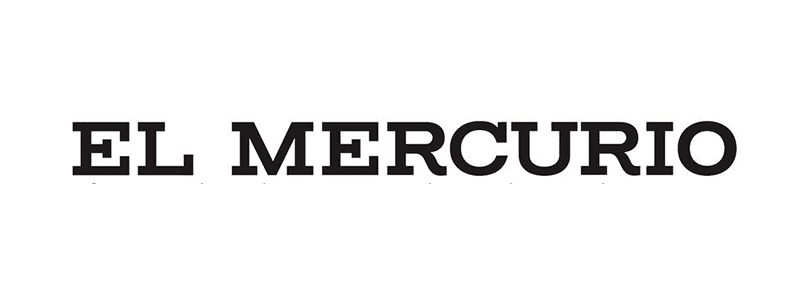We invite you to read the LexLatin report in which our partner, Rodrigo Albagli, commented on the importance of compliance programs in companies as a result of the new Economic Crimes Law.
From now on, public and private companies can be subject to criminal prosecution. Why is this the reform of the century and how will it impact the implementation of compliance programs?
On September 1, the Economic Crimes Law came into full force in Chile, which typifies crimes related to business activity and extends liability to legal entities. The aim of the law, considered the most important judicial milestone in the country since the publication of the Criminal Code in 1874, is to combat economic impunity.
Chilean companies had a year to prepare and strengthen their compliance programs, after Gabriel Boric’s government enacted Law No. 21,595 on August 17, 2023.
“It systematizes economic crimes and attacks against the environment, regulates the penalties and consequences applicable to the persons responsible for these crimes and modifies various legal bodies to perfect and complement their regulations in the field of economic criminal law”, the Chilean president had announced in a framework of extreme social pressure.
At that time, Congress demanded stiffer penalties for the popularly known as “collar and tie” crimes.
In a first stage, the law incorporated some twenty crimes with a focus on the criminal liability of individuals. In this second stage, it expands the catalog of crimes contemplated in Law No. 20,393 to more than 200, with a focus on the liability of companies.
“The Economic Crimes Law has, mainly, three objectives: first, it systematizes the crimes that may be considered as economic crimes in a single legal body; secondly, it establishes a system for determining special penalties for this type of crimes, which contemplates mitigating factors, special aggravating factors, specific and more restrictive rules for the establishment of alternative penalties and, finally, and with regard to the legal person, it seeks to commit companies and other bodies in the fight against corruption and the prevention of crimes related to economic activities, establishing incentives as exemptions from liability for those companies that take this work seriously and establish an effective crime prevention model, according to their activities, industry, size and resources”, summarizes Francisca Franzani, partner of the compliance and white collar area of DLA Piper.
According to Rodrigo Aldoney, Carey’s senior advisor, this regulation also seeks greater severity in the punishment of economic crimes in a double sense.
“Without raising the framework of criminal sanctions, it toughens the determination and execution of the penalty with respect to natural persons, seeking to effectively enforce the custodial sentence and also seeks to root the sanction in who could be considered the real culprit of many economic crimes: the very organization of the individual who commits the crime.”
Thus, according to the specialist, companies and other legal entities must be criminally liable for all the activities they carry out that may incur in a crime, and not only with a fine as a minor cost.
“In this way, the aim is to strengthen the deterrent effect of the penalty: the company will no longer be able to evade the sanction by placing the responsibility exclusively on the individual who acted on its behalf,” he says.
Prevention, the crux of the matter for companies
The Economic Crimes Law has been on everyone’s lips because it assumes, on its own, a challenge: the implementation of an ethical culture. What does that look like? Public and private companies have been working on their compliance programs for some time, especially after regional scandals such as the Convenios Case, Odebrecht, Panama Papers and Lava Jato, among others.
Although all the companies involved in the aforementioned cases had a checklist of documents related to codes of ethics, anti-corruption manuals and training on money laundering, they had a major shortcoming: the implementation of their documents; there was no ethical culture in the organizations.
In this sense, the Economic Crimes Law has generated a strong impact on the organization of the internal systems of the companies.
“The key will be to prevent the commission of crimes by establishing a Prevention Model that will encourage and generate an ethical culture of doing things,” says Franzani.
In this regard, Aldoney warns that the development of business activity faces unparalleled sanctioning risks in the Chilean legal system, making the managerial functions in the company more complex.
New legal framework or paradigm shift?
Rodrigo Albagli, managing partner of Albagli Zaliasnik, says that this framework will expose merely ‘cosmetic’ prevention models, as these are the ones that reveal the real willingness of companies to move towards best practices with a solid ethical culture.
“Indeed, it is more of a paradigm shift, because it is driving a very deep cultural change within companies. Today there is an understanding among companies of the importance of having a risk prevention program that allows them to identify risks, establish protocols, assign people responsible for this issue and carry out continuous evaluation. The biggest challenge is to have a crime prevention program that is really effective.”
According to Albagli, an effective risk prevention program will be the main defense that companies will have in the event that a crime is committed within their organization: yes, to avoid fines and even imprisonment, but also, and perhaps even more importantly, because practical evidence shows that a strong culture of ethics and compliance, supported and promoted by the board of directors of companies, leads to better indicators of innovation, adaptability, employee loyalty, talent attraction, customer satisfaction and reputation.
Read the full story here. Source: LexLatin 31 August [See here].




